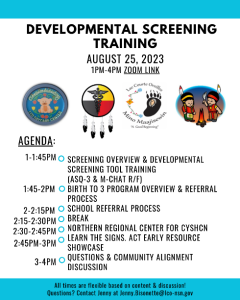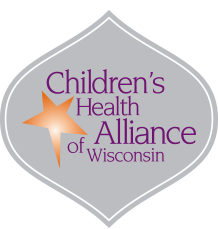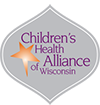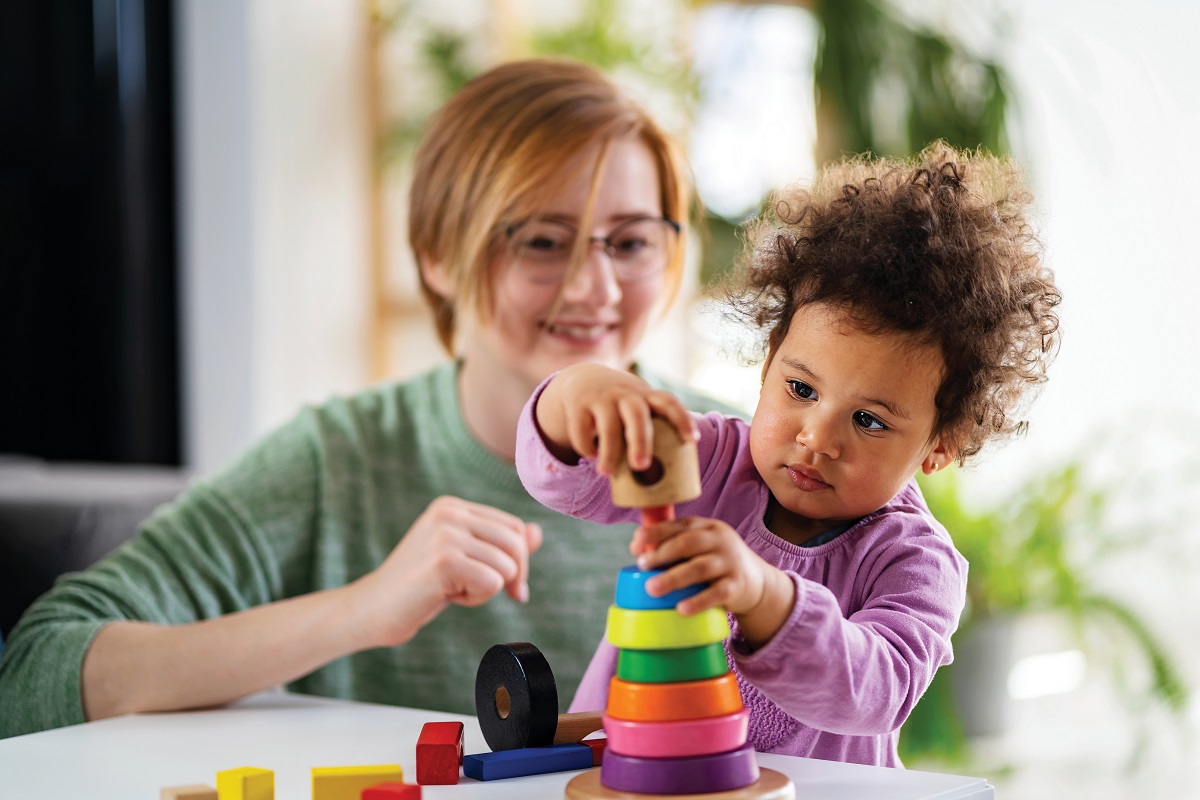Written by Morgan Conti
Did you know your child could receive a developmental screening by their child care providers, home visitors, or early childhood educators? While developmental screening is often completed at well-child visits, we know that there are many organizations that play a role in a young child’s life!
 In August, the medical home initiative collaborated with Lac Courte Oreille’s (LCO) Mino Maajisewin Home Visiting Program to support their community approach to screening. Jenny Bisonette, program coordinator for the Mino Maajisewin Home Visitation Program, is a part of the group working on the developmental screening national performance measure with 15 other tribal health centers and health departments statewide. The medical home initiative provides technical assistance and support to those teams. Jenny connected with the medical home initiative with interest in coordinating a cross-sector training. She invited a variety of community partners including child care, Head Start and health center staff – all of which provide direct services for children ages 0 to 5, and are looking to identify developmental concerns and connect to resources in the LCO community.
In August, the medical home initiative collaborated with Lac Courte Oreille’s (LCO) Mino Maajisewin Home Visiting Program to support their community approach to screening. Jenny Bisonette, program coordinator for the Mino Maajisewin Home Visitation Program, is a part of the group working on the developmental screening national performance measure with 15 other tribal health centers and health departments statewide. The medical home initiative provides technical assistance and support to those teams. Jenny connected with the medical home initiative with interest in coordinating a cross-sector training. She invited a variety of community partners including child care, Head Start and health center staff – all of which provide direct services for children ages 0 to 5, and are looking to identify developmental concerns and connect to resources in the LCO community.
As a champion for early identification, Jenny also invited early intervention partners to share about programming and the referral process. Sawyer County Birth to 3, Hayward School District, Wisconsin’s Act Early Ambassador and Northern Regional Center for Children and Youth with Special Health Care Needs (CYSHCN) all joined to present at the training. The medical home team lead the screening tool training portion, covering both the Ages and Stages Questionnaire Third Edition (ASQ-3) and Modified Checklist for Autism in Toddlers Revised with Follow-up (M-CHAT R/F), and supported Jenny behind the scenes with coordinating technology, creation of the agenda and providing certificates for attendees.
Using relationships to propel screenings
We utilize parent-reported screening tools because we know that children will show their truest abilities with those they feel most comfortable and have a trusting relationship with. Why not do the same for parents and guardians?
Utilizing partners that have strong rapport and frequent interactions with parents, allows providers and professionals to meet parents where they are at. This helps to complete a screening with honesty, leading to more accurate results and a true partnership in the process.
This approach, modeled by LCO’s home visiting team, is the start of community alignment to improve parent education around developmental delays and early identification efforts for children of the LCO community. Not only are partners now trained on screening tools, but they have expanded their own network of early intervention partners – so they can feel confident discussing referral options with parents and ensuring they get to the services needed.
We look forward to connecting with Jenny and her team in the coming months to find out about developmental screening progress!
Learnings
If this approach to training taught us anything, it is that we can equip all community partners working with young children and families to monitor and screen for developmental delays and improve child outcomes one community at a time!
To learn more, visit the Alliance’s Developmental Screening page.


